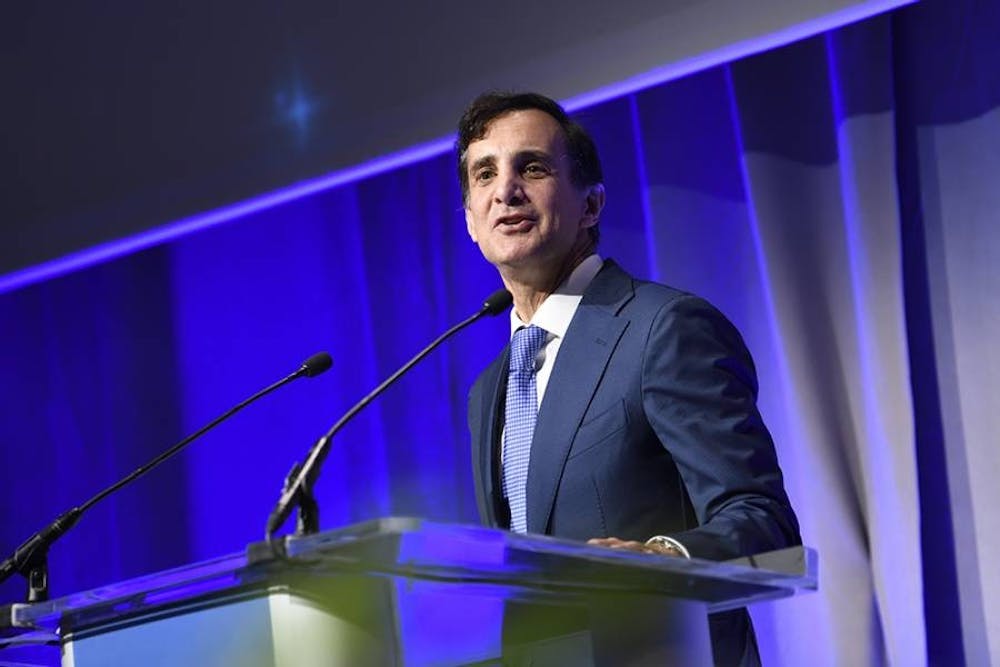The Rising to the Challenge fundraising campaign, which began eight-and-a-half years ago, ended two weeks ago on Oct. 11. Over the eight-and-a-half-year period, the campaign raised over $6 billion for Hopkins, which exceeded the campaign goal of $4.5 billion.
Deans within different divisions of the University each set individual fundraising targets early in the campaign, which comprised the overarching campaign goal. Private donors including alumni, patients, families and graduating seniors were the primary contributors to the campaign.
Chuck Clarvit, one of three co-chairs for the campaign, discussed the difference between restricted and unrestricted donations.
“Quite a bit of the money is restricted — meaning the donor identifies the specific area they want to fund, such as student aid or a specific professor’s work or a specific doctor’s research,” he said. “Some of it goes to cover other needs in the provosts or the president’s budget.”
Bloomberg Distinguished Professor of Sociology and Education Stephen Morgan explained that he supports the idea of restricted donations because they uphold donor interests.
“If there was someone who wanted to give $200 million for cancer research, and they did not want to give anything for student financial aid, I would think that’s perfectly fine,” he said.
In an email to The News-Letter, Vice President for Development and Alumni Relations Fritz Schroeder explained that student financial aid was a priority during the campaign.
“The campaign raised $233 million for undergraduate student aid and established 159 new endowed undergraduate scholarships,” Schroeder wrote. “Thanks to our donors, the grant aid budget for Homewood campus undergraduates has more than doubled since 2009, the year before Rising to the Challenge began.”
Clarvit emphasized that though some people believe that an increase in donations should lead to a decrease in student tuition, this is a misconception.
“If you actually study the cost of major universities, the tuition often covers only 40 percent of the total costs of the operating budget,” he said. “If it wasn’t for the generosity of philanthropists, we would not be able to provide students with the excellent education we offer at Hopkins.”
Morgan felt that even if the campaign fund did receive enough donations to reduce tuition, he would not support all students’ tuition being reduced by the same amount.
“There are a lot of enormously wealthy Hopkins students whose parents can afford to pay it, and they should be charged it, because it reflects the true cost of their education,” he said. “A lot of the people who are able to pay that also have cars sitting in their driveways that cost a lot more than a year of Hopkins tuition.”
The Senior Class Gift was another source of donation for the Rising to the Challenge campaign. The Senior Class Gift Committee encourages each member of the graduating class to donate one percent of their graduation year. For instance, the Committee encouraged the class of 2018 to donate $20.18 last year.
AJ Tsang, the director of co-sponsorships for the Senior Class Gift Committee, emphasized the importance of increasing the University’s endowment through campaigns like Rising to the Challenge.
“Even though [the endowment] seems large from a raw numbers perspective, because Hopkins is so proportionately small compared to schools like Harvard and Princeton, it’s hard for the school to fund, proportionately speaking, as much in terms of financial aid support, a student center or building construction,” he said.
Jennifer Baron, the director of inspiration and education on the Senior Class Gift Committee, explained how donations from graduating seniors help start the pattern of giving and help future students have a positive experience.
“It is very important for students to start giving now, because it sets a pattern for students to hopefully give in the future when they are more developed in their careers. Giving now through the small donation can make a large impact,” she said.
Tsang echoed Baron’s sentiment of supporting future generations of students.
“At the end of the day, we are one of the decades of generations of Hopkins students that come through the University,” Tsang said. “So it’s important to remember that even though our time at Hopkins ends in May 2019, there are decades of Hopkins students who will look to us to support their experience.”





